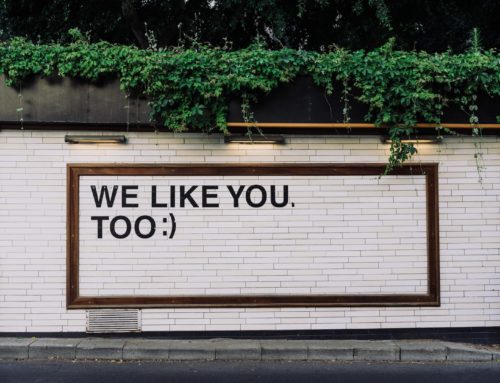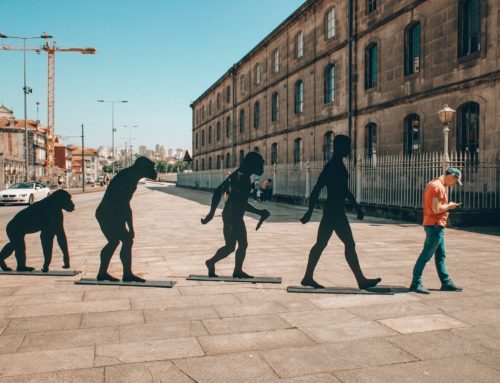Not all traditions are bad. It’s important we delve into this topic with the understanding that traditions can be a great thing — we just need to figure out exactly which ones.
Defined as, “the transmission of customs or beliefs from generation to generation,” tradition plays an integral role in various personal dimensions such as culture, family, celebration, and the broader characterization of one’s own identity. Humans tend to like tradition, and whether it’s because we gravitate towards ways of honoring the people and ideas that came before us, or we’re just suckers for a bit of ceremony, traditions exist within every facet of our lives.
In any logician’s argument, appeal to tradition is outlined as a fallacy of invalid reasoning. In other words, the fact that something may, or may not, be considered a tradition, does not provide adequate justification for its continued observance — We need a better defense than the declaration that, “it’s always been done this way.”
What’s more is that we’ve already come a long way in recognizing that certain historical systems of belief, and the traditions and behaviors they have given way to, largely act as a hindrance for societal progress. We realize that tradition does not excuse acts of injustice, and that the maintenance of harmful customs should be something we, as a society, actively oppose, rather than pursue continued engagement with. Yet, as has been made increasingly apparent in the recent socio-political climate of the West, we are so defensibly hesitant to accept that there is more work to be done in dismantling damaging tradition.
Often times, claims of tradition act as a form of normalized, and socially- acceptable camouflage for the harmful perpetuation of double standards, racial bigotry, environmental neglect, and acts of violence towards both human and non-human animals, alike. Though the question of whether defendants of the claim to tradition directly profit from its ongoing practice, or just wish to persist in willful ignorance of its problematic origins, remains unanswered by and large, there is, rightfully so, a growing degree of scrutiny for outdated and oppressive convention.
Everyday norms such as men paying on the first date, or women taking their husband’s last name upon entrance into wedlock exemplify what remains pervasive of sexist attitudes and otherwise purposeless actions within our culture. This is not to dismiss the validity of those individuals who might feel as though their participation in these traditions possesses a degree of significance wholly unrelated to the processes that created them. After all, it is the fact that these customs are so normalized that almost guarantees their assured maintenance, and this will largely, and understandably remain unchanged until the norms themselves, are subject to change.
From seasonal celebrations such as the Super Bowl or Thanksgiving, to the persisting notion of meat consumption being intrinsically linked to masculinity, the rationalization of slaughtering billions of animals per year rests on tradition, alone. Around 600 million chickens are killed to be eaten each year on Super Bowl Sunday, yet amidst the outbreak of a global pandemic (one of zoonotic origins at that), unprotected slaughterhouse workers were forced to cull millions of U.S. factory farm animals due to severe decrease in demand. The sheer pointlessness of traditions that fuel environmental unsustainability and contribute overwhelmingly to the rising rates of heart disease, cancer, and worldwide obesity, is obscured only by the determination of affiliate sectors to profitize from its continuation.
The passing of the recent holiday on the 4th of July was accompanied by conflicted sentiment from civilians, as so many of the freedoms that the United States prides itself on have felt further out of reach for many, than they have been acknowledged as being. In addition, the usage of fireworks and explosives to commemorate American independence bears an innumerable range of consequences ranging from wildlife fatalities, air pollution due to chemical toxicity, as well as distress for small children, animals, and individuals with PTSD. When we examine the negative ramifications in conjunction with the necessity of these traditions, we are left, unsurprisingly, empty handed.
The controversy surrounding the second Monday of October provides us with an opportunity to shift tradition in a way that benefits the celebration of an incredible culture, rather than the falsely defended reputation of a dead man. Perhaps changing the name of a federally recognized holiday from Columbus Day to Indigenous Peoples Day seems like a simple perhaps superficial way to maintain historical accountability, yet there are hordes of individuals who protest this alteration, nonetheless. Juneteenth, a day that marks the signing of the Emancipation proclamation in the United States, and the first step towards the ending of slavery, is yet to be recognized on the national level. With such a seemingly opportune, yet poignant, occasion for the creation of new traditions, ones that seek to dissolve the foundations of oppression and violence, it is a mystery why we cling so tightly to our cement statues, instead.
It is not the goal of this case against tradition to remove ceremonial pillars of joy, freedom, and heritage within society. On the contrary, it is the aim of this discussion to spark the understanding that all these things can be eqaully derived from a new, and better place. Therefore, personal identity is not held stagnant in the customs and belief systems of the past, rather it is decided upon consciously through the manner in which we move forward, the manner in which we engage with the present, and the manner in which we fight against oppressive tradition.





